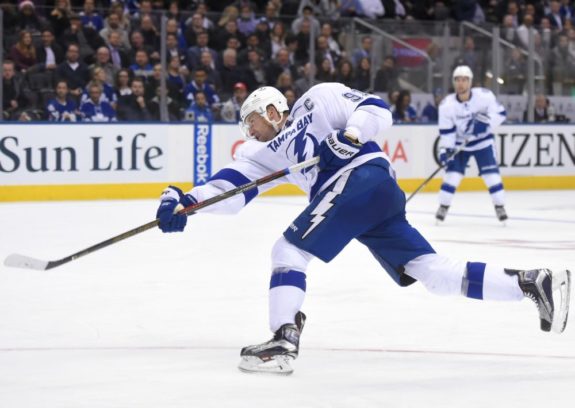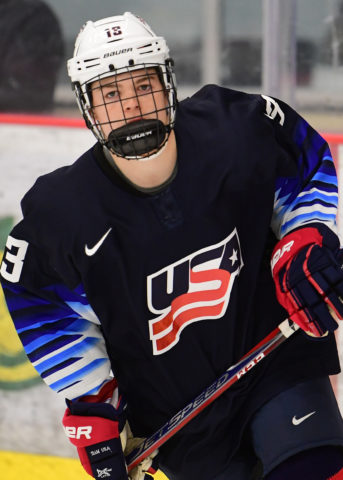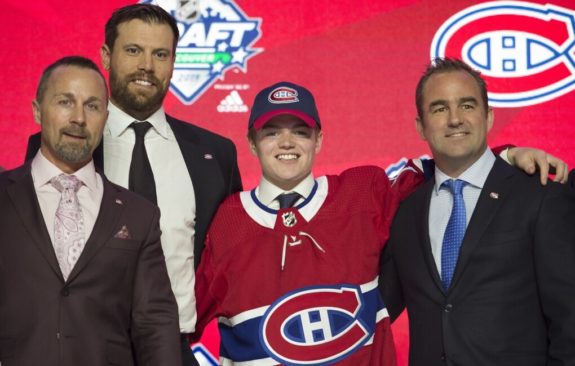In the summer of 2017, I sat in the stands of Young Arena in Waterloo, Iowa, watching my son participate in the Waterloo Blackhawks USHL Futures Invite Camp. The on-ice instructor was former Waterloo Blackhawks standout and current Vancouver Canucks star, Brock Boeser.
I leaned in to listen as Boeser talked to and coached these youngsters, and as, I watched him explain the art of goal scoring, two things stood out: first, his release and technique; and second, how he emphasized that a scorer finds a way to create space for himself. These are critical factors that elite goal scorers possess, and that allow snipers like Boeser, Alex Debrincat, Steven Stamkos, and Alex Ovechkin to turn games in their favor as a result.
Goal Scoring
One observation about this season’s Montreal Canadiens team is that they have controlled play in most of the games they’ve played, including the ones they’ve lost. The key difference in their losses is that they can’t capitalize on their chances on a consistent basis, and it stems from a lack of elite goal scoring in their lineup.
Take Tuesday night’s 3-1 loss to the Tampa Bay Lightning as an example. The Habs outshot the Lightning 34-22 and controlled the play for a significant part of the game, and had better scoring chances throughout. However, the game was determined in a 2:08 span when the Lightning scored three goals between the last shift in the first period and the first couple of shifts in the second period. The difference: elite talent and elite goal scoring.

At 1:04 of the second period, Stamkos scored the eventual game-winner on one of his patented off-wing one-timers, beating Carey Price on the blocker side. It was similar to the Canadiens’ loss to the Sabres in Buffalo on Oct. 9, when the Habs controlled and out-chanced the Sabres for long periods of time, but Jack Eichels’ talent changed the outcome of the game in a couple of shifts in the second and third periods.
The Habs struggle against teams with elite goal scoring and they tend to scramble for entire periods to score make-up goals that teams like the Lightning can produce at will from stars like Nikita Kucherov, Brayden Point and Stamkos. If the Canadiens want to compete with teams like the Toronto Maple Leafs, Boston Bruins or the Lightning, they need elite goal scoring and the answer could already be in the organization.
Prospect Profile: Cole Caufield
Born in Mosinee, Wisconsin, Cole Caufield is from a hockey family. His father is originally from Sault St. Marie, Ontario and played college hockey for the University of Wisconsin-Stevens Points, while his older brother, Brock Caufield, plays for the Wisconsin Badgers. Cole played for Team Illinois AAA at the youth level, and secured his first 50-goal season in 22 games playing for Stevens Point High School.
He then made the US National Team Development Program (USNTDP), where he scored 23 goals and 33 points in 32 games in his rookie season in the USHL in 2017-18. The next season, he smashed the USNDTP goal-scoring record with 72 goals in 64 games, breaking records held by Auston Matthews, Phil Kessel and Patrick Kane.

Despite all his scoring accolades, scouts always referred to his size when they talked about Caufield, or his lack of it. He’s 5-foot-7, which has been brought up almost as often as his truly elite goal scoring numbers. Even in today’s NHL, where speed and skill are emphasized over size and grit, these questions are a focal point for this prospect.
Caufield’s Fall is the Canadiens’ Gain
Despite being projected as a top-10 draft pick in the 2019 NHL Entry Draft (some experts had him being drafted in the top five), Caufield continued to fall as the top ten were selected. The question of his height was considered the lone reason why he wasn’t called up to podium earlier, and when the Philadelphia Flyers were poised to pick 14th, despite needing goal scoring, they selected teammate Cam York from the US National Development Team, (from ‘NHL draft: Flyers surprisingly pick defenseman Cam York in first round,’ Philadelphia Inquirer, 06/21/2019).

Cue the Canadiens, a team that has had a history of success developing small-statured but skilled players, including, Mats Naslund, Saku Koivu and most recently Brendan Gallagher. Cue the team that desperately needs an elite goal scorer. The Habs headed to the podium and made Caufield the 15th pick. The team found their elite scorer, now considered the Habs’ top prospect; a perfect match for both the player and organization.
What to Expect?
Caufield is attending the University of Wisconsin this season, where he is off to a blazing start. He’s played two games against Boston College (who has future NHLer Spencer Knight in nets), and Caufield has four goals and one assist. In these games, he has continued to find time and space to fire his lethal shot. His hockey IQ is off the charts, and having former NHL bench boss Tony Granato as his head coach this season will help his development. The NCAA employs a 3:1 practice-to-game ratio, and having that extra development time with Granato will speed up Caufield’s growth as a player. He also has a chance to shatter some NCAA freshman scoring records this season.
Assuming that Caufield has a big freshman season, I wouldn’t be surprised to see him sign with the Canadiens as soon as this spring and maybe get into a few games near the end of the regular season, similar to Ryan Poehling last year. This may be the best pure goal scorer the Habs have had in their pipeline since Guy Lafleur. The days of Montreal lacking an elite goal scorer may soon be over.